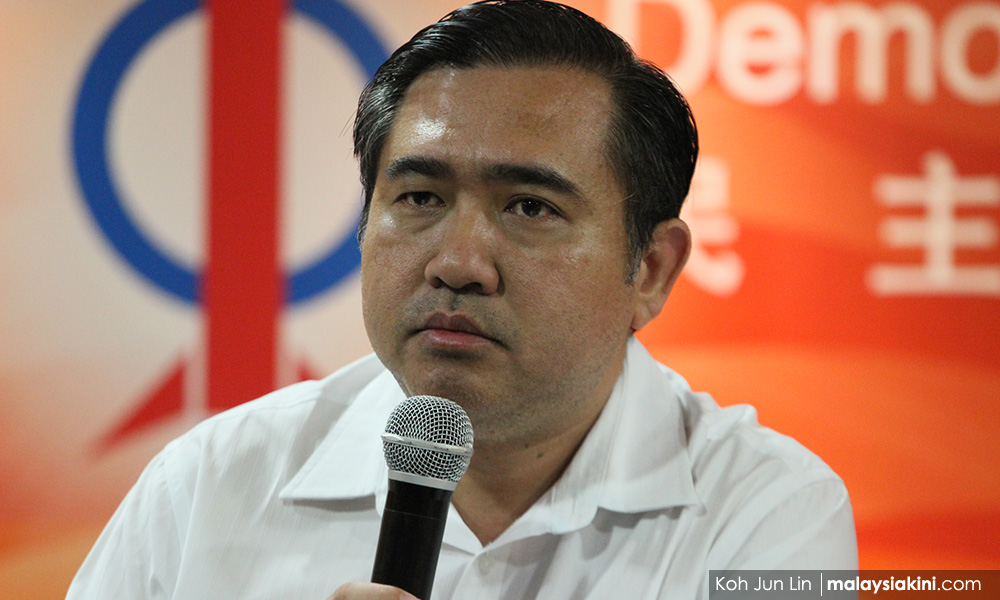COMMENT | Seven parliamentary constituencies will be the first-line 'star' constituencies in the battle to 'Save Malaysia' in the 14th general election, and set the country free from Umno/BN misrule, corruption, abuses of power, injustices and exploitation.
They are Ayer Hitam, Teluk Intan, and Stampin, where Johor, Perak and Sarawak DAP state chairpersons Liew Chin Tong, Nga Kor Ming and Chong Chieng Jen have left comparatively safe seats to contest in high-risk constituencies to spark a 'Malaysian tsunami' to oust Umno/BN from Putrajaya for the first time in 61 years.
In Seremban, DAP national organising secretary and Negri Sembilan state chairperson Anthony Loke has refused to relocate to safer seat, although it has become a very risky seat as a result of the gerrymandering in the constituency redelineation.
The 'star' battlegrounds also include Langkawi, where Pakatan Harapan chairperson Dr Mahathir Mohamad will be contesting, Pagoh with Bersatu president Muhyiddin Yassin, and Semporna with Parti Warisan Sabah chief Mohd Shafie Apdal.
The second-line 'star' constituencies in the 14th general election will include Iskandar Puteri, Jerlun (Mukhriz Mahathir), Kota Raja (Mohamad Sabu), Kota Bahru (Husam Musa), Bentong, Labis and Kluang.
I remember when I moved from the Ipoh Timor parliamentary constituency in Perak to contest in Gelang Patah in Johor in the 2013 general election, many felt it was a foolhardy decision to move from a very safe seat to a high-risk one.
There were even those who regarded the Gelang Patah seat as a 'sure loss' for me in GE13. Now there is the view that the Iskandar Puteri parliamentary constituency in Johor is a “sure win” for me.
The view that Iskandar Puteri is a 'sure win' in the GE14 is as mistaken as the view in that Gelang Patah was a 'sure loss' in 2013.
There is no doubt that as a result of gerrymandering in the latest constituency redelineation exercise, Iskandar Puteri has become a more risky seat than Gelang Patah.
Gelang Patah’s racial breakdown of the electorate in 2013 was 53 percent Chinese, 34 percent Malays and 13 percent Indians. The racial breakdown of the electorate of Iskandar Puteri in the GE14 is 49 percent Chinese, 38 percent Malays and 13 percent Indians.
I thank the people of Gelang Patah for their vote and support since GE13, and I seek the vote and support of the people of Iskandar Puteri.
Creating history
DAP is creating history with its candidate lineup for parliamentary and state assembly elections for GE14 on May 9.

It is fielding candidates in 47 parliamentary and 105 state assembly seats, totaling 152 seats, but involving 148 candidates, as four DAP leaders, namely DAP secretary-general Lim Guan Eng, Penang DAP chairperson Chow Kon Yeow, Nga and Loke (photo), are contesting both parliamentary and state assembly seats.
Also, for the first time in the 52-year history of DAP, an Orang Asli candidate, Nasir Dollah, will be fielded in the Galas state assembly seat in Kelantan.
The ethnic breakdown for the 148 DAP candidates are: Orang Asli (one), Iban (three), Kadazandusun Murut (three), Malay (10), Indian (22), and Chinese (109).
DAP also has one of the youngest candidates for all political parties in GE14, my political secretary Kerk Chee Yee, 25, who will be contesting in the Ayer Keroh state assembly seat in Malacca.
DAP has nine candidates who are 30 years or below. Apart from Kerk, the other eight are: Jamaliah Jamaluddin, 29 (Bandar Utama), Michelle Ng, 28 (Subang Jaya), Lim Yi Wei, 28, (Kampung Tunku), Choy Tsi Jen, 30 (Canning), Teoh Yee Chern, 28 (Astaka), Syefura Othman, 28 (Ketari), Teh Swee Leong, 28 (Kota Darul Aman), and Phoong Jin Zhe, 29 (Luyang).
This is because Malaysia has a very youthful population, with the latest demographic profile of the country of 31 million people last year as follows:
- 0-14 years: 27.83 percent (male 4,493,084/female 4,238,991)
- 15-24 years: 16.81 percent (male 2,677,834/female 2,598,958)
- 25-54 years: 41 percent (male 6,507,499/female 6,358,762)
- 55-64 years: 8.27 percent (male 1,316,331/female 1,277,558)
- 65 years and over: 6.1 percent (male 907,850/female 1,005,125) (2017 est.)
This is also why DAP is fielding 27 women candidates in eight parliamentary and 19 state seats.
On May 9 two years ago, the Filipinos changed their president in their general election. On May 9 last year, the South Koreans changed their president in their presidential election.
It is now the turn of Malaysians to change their prime minister on May 9.
This is the decision in the hands of the 15 million Malaysian voters.
LIM KIT SIANG is DAP parliamentary leader and incumbent Gelang Patah MP.
The views expressed here are those of the author/contributor and do not necessarily represent the views of Malaysiakini.


